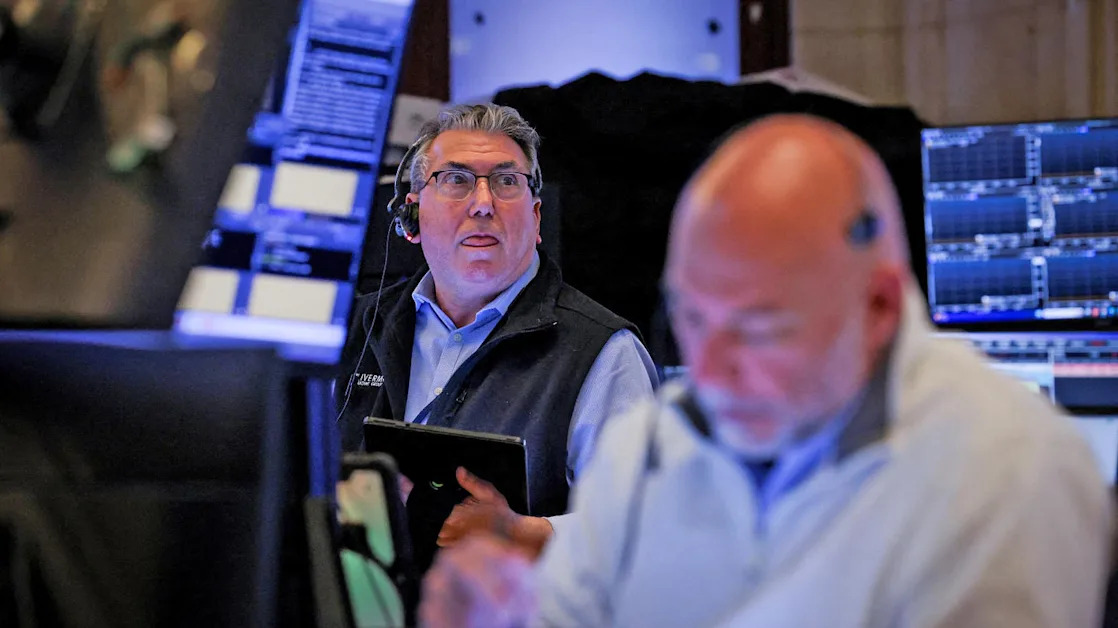
Markets jump after Trump softens rhetoric on China and Fed chair

U.S. stocks opened higher Wednesday after President Donald Trump signaled a softer stance toward the eye-watering tariffs he had set for China, while also stating he would not make an immediate change in leadership at the Federal Reserve.
Investors were also cheered by Elon Musk's imminent return to a more full-time focus on Tesla, dialing back his controversial stint as a Trump White House adviser to one to two days a week.
The S&P 500 climbed as much as 3.2% in early-morning trading. The tech-focused Nasdaq surged 4.1%. Dow Jones Industrial Average gained 1,000 points or about 2.7%.
Investors also increased demand in U.S. government bonds, lowering borrowing costs — an explicit goal of the Trump administration.
Trump told reporters Tuesday evening that the China tariffs, which on paper have reached as high as 145%, would "come down substantially" as he looked to secure a trade deal.
Those remarks came after Treasury Secretary Scott Bessent told a group of investors earlier in the day that the administration was looking toward “ de-escalation ” with China. “No one thinks the current status quo is sustainable,” he said according to CNBC, which cited a person present at the investor gathering hosted by JP Morgan.
Trump also said Tuesday he had "no intention" of firing Federal Reserve Chair Jerome Powell, despite calling him a "major loser" and "Mr. Too Late" the day before — a reference to what Trump perceives as dawdling in lowering interest rates.
Economists had warned that any threat to the central bank's independence would upend global markets and cause U.S. borrowing rates to surge.
With Wednesday's gains, stocks will have climbed about 8% over the past week and a half.
Yet they remain about 13% off of the highs seen in January, just after Trump's inauguration. Markets remain bruised — perhaps indefinitely so — by Trump's erratic policymaking.
Trump changes-of-mind have been a constant of his second term, and there was nothing to suggest that the latest evolution of his thinking would be final.
“With investor concerns growing, U.S. President Trump demonstrated the art of the retreat," Paul Donovan, chief economist of UBS Global Wealth Management, said in a note to clients.
He continued: "Nonetheless, the erratic threaten-retreat-threaten-retreat cycle has economic consequences. The uncertainty this causes may impact consumer and business decision-making.”
Some commentators believe a more lasting shift by foreign investors away from holding U.S. assets has already begun.